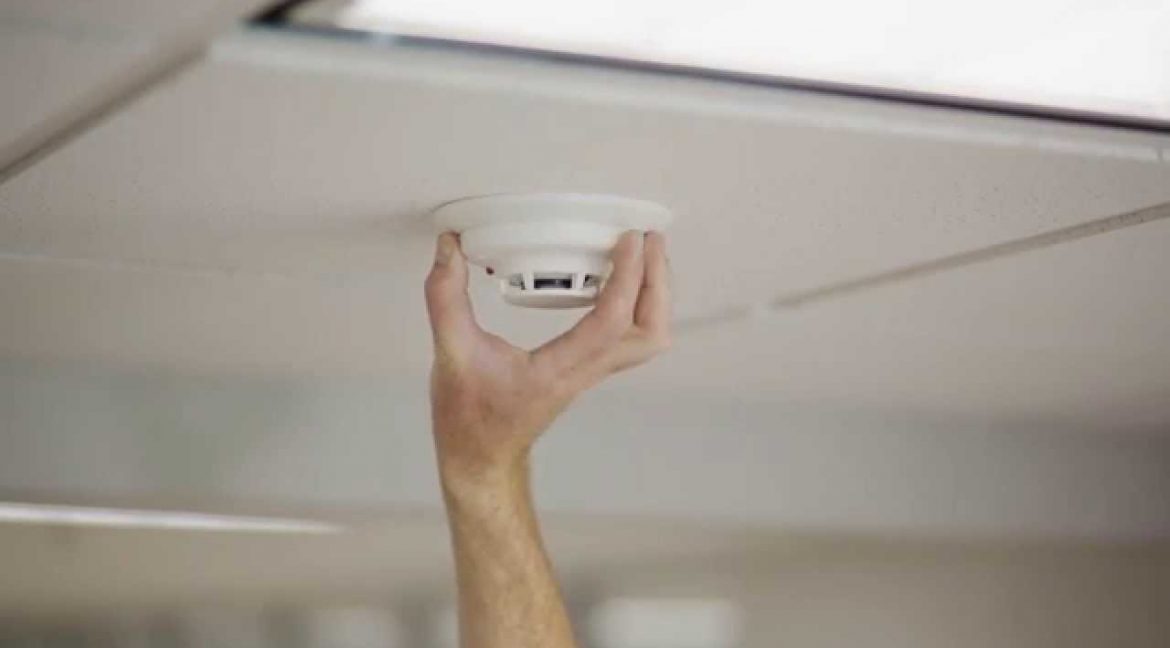Smoke alarm standards in Australia : Here’s a quick overview of how to ensure your properties are compliant with the current regulations
As a property investor, it’s important that you understand the rules and regulations for smoke alarms in any properties you own.
This isn’t as simple as it sounds, because the standards you need to meet to protect your tenants differ depending on the state your property is located in.
The smoke alarm regulations in your state also evolve over time,
not simply to cost you money and give you another thing to keep up-to-date with – but to keep your tenants safe.
Here’s a quick overview of how to ensure your properties are compliant with the current regulations in your state.
Victoria
Smoke alarms must be installed in all Victorian houses, units, flats and townhouses –
and landlords are responsible for fitting smoke alarms in rented properties.
Hardwired smoke alarms with a battery back-up must be installed in all buildings constructed after 1 August 1997.
Buildings constructed before that date can have a battery-powered smoke alarm.
Rooming houses (buildings where one or more rooms are available to rent,
and four or more people in total can occupy those rooms) must have hardwired smoke alarms.
For more information on testing, maintaining and replacing smoke alarms, visit the Metropolitan Fire Brigade’s website.
For more information on your responsibilities with regards to smoke alarms, see the Victorian government website.
Otherwise, feel free to contact your property manager for advice on ensuring your compliance with the regulations.
New South Wales
In New South Wales, the responsibilities of landlords and tenants under the Residential Tenancies Act are clearly outlined.
- Landlords are responsible for installing smoke alarms in rented premises.
- Landlords have the right of access to rented premises to fit or maintain smoke alarms after giving the tenant a notice period of at least 2 days.
- Neither the landlord nor the tenant are, except with reasonable excuse, permitted to remove or interfere with the operation of a smoke alarm fitted in the rented premises.
- Where a smoke alarm is of the type that has a replaceable battery, it is recommended that the landlord put a new battery in at the commencement of a tenancy.
- Legally, after the tenancy begins, the tenant is responsible for replacing the battery if needed. However, we recommend that owners schedule annual smoke alarm maintenance checks to secure smoke alarms are operating effectively.
- The condition report includes a specific reference to smoke alarms, so that tenants and landlords can note and comment on the presence of smoke alarms at the beginning and end of the tenancy.
For further information, you can visit the New South Wales government website, or get in touch with your property manager today.
Queensland
The Fire and Emergency Services (Domestic Smoke Alarms) Amendment Act 2016 (Qld) effective
from 1 January 2017 and imposes additional obligations on property owners with regards to the installation and maintenance of smoke alarms at domestic dwellings.
Some of the new regulations call for smoke alarms to be installed in every bedroom, and in hallways.
Queenslanders may have felt the recent financial pressure from a shift in standards – but they need not worry just yet.
If their existing smoke alarms were manufactured less than 10 years ago,
and are still in good working order, they will comply with the new legislative requirements.
In fact, most of the new requirements will not be in effect until 2022.
So, while compliance with these regulations is imperative, the time pressures at this stage do not present an issue.
However, it is important for property owners to understand the new requirements and the timeframes that apply.
From January 1 2017, owners must make sure:
- When replacing smoke alarms, they are of a photoelectric type that complies with Australian Standard (AS) 3786-2014.
- Existing smoke alarms manufactured more than 10 years ago must be replaced.
- Smoke alarms that do not operate when tested must be replaced immediately.
- Existing hardwired smoke alarms that need replacing must be replaced with a hardwired photoelectric smoke alarm.
The new legislation will have further implications on property owners, with more requirements for compliance effective from early 2022.
You can always find out more about the new smoke alarm legislation from Queensland Fire and Emergency Services.
South Australia
The Development Act 1993 requires smoke alarms must be installed on every storey,
they must be located between each part of the dwelling containing bedrooms and the remainder of the dwelling.
Smoke alarms must also be installed in any hallway leading to the bedrooms.
Landlords must comply with smoke alarm legislation in all residential rental properties including detached houses,
villa units, sole occupancy units, guest houses and hostels.
The type of smoke alarm you require depends on when you purchased your home or the age of your home.
For homes or residential rental properties that are purchased before 1 February 1998 you are required to fit a replaceable battery powered smoke alarm.
For homes or residential rental properties purchased on or after 1 February 1998,
regulation requires a smoke alarm (or smoke alarms) to be fitted within six months from the day on which the title is transferred and be either a 240 volt,
mains-powered smoke alarm or a 10-year life, non-replaceable, non-removable, permanently connected battery powered smoke alarm.
For homes or residential rental properties built on or after 1 January 1995 the Building Code of Australia requires a 240 volt, mains powered smoke alarm.
You can find more information here.
Follow us on Instagram for more real estate properties and
For other Most Related Quires Visit our website Astonroserealestate .



